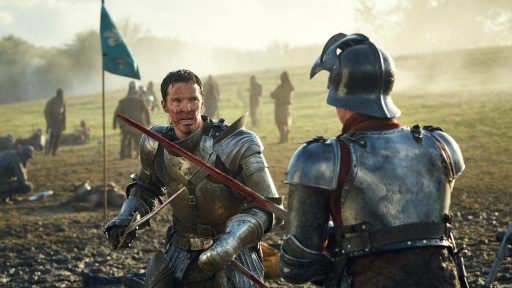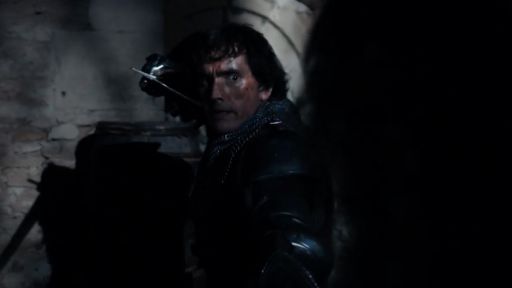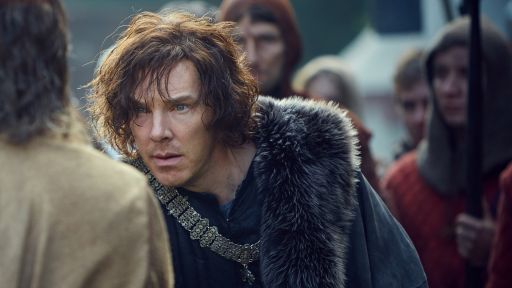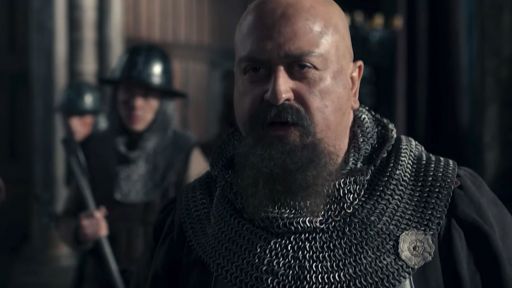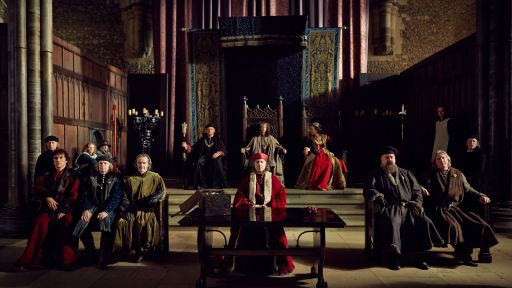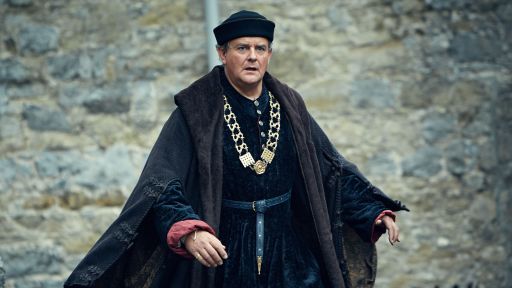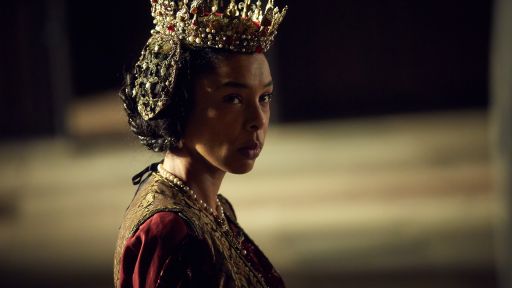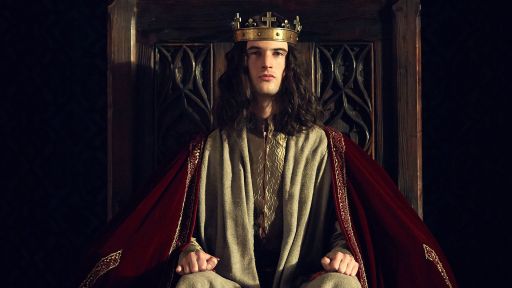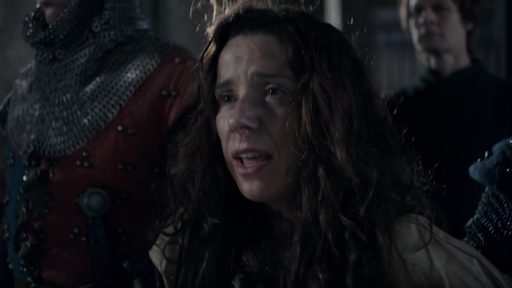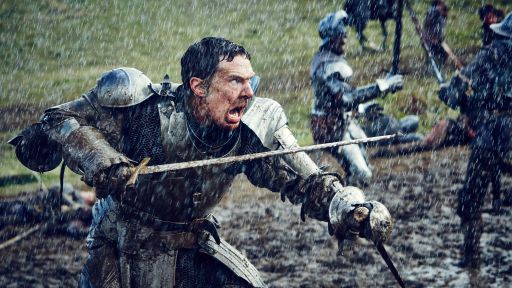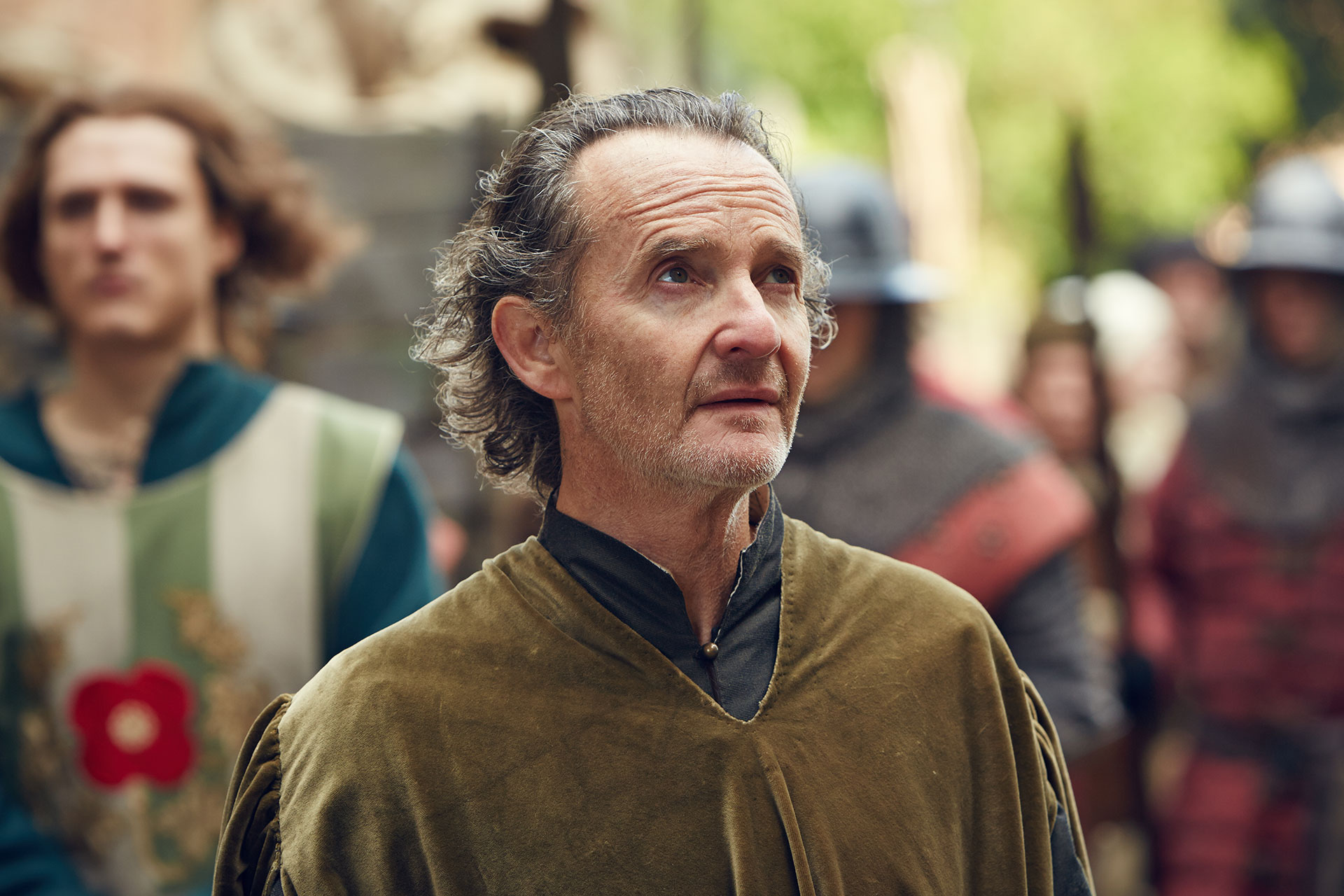
Anton Lesser (as EXETER) in “The Hollow Crown: The Wars of the Roses Henry VI (Part II).” Credit: Robert Viglasky © 2015 Carnival Film & Television Ltd
What’s the story of The Hollow Crown: The Wars of the Roses?
A power vacuum exists with Gloucester and Winchester vying for power over the new young king. Exeter is old-school, reliable, keeper of the peace. He wants to honor the deceased king but he watches that world fragmenting. His perspective is a nice continuity for observing.
Henry’s powers have been thrust upon him. He would like to hand it over and concentrate on his spiritual journey. Yet at the same time he has a real conscience about being a good king. He’s very conflicted. Shakespeare explores what a king is without the trappings of royalty, and what makes a real king?
You played the same character in the first series of The Hollow Crown. What was it like to come back?
Someone, I’m not sure who, remembered that Exeter is a continuous character from the first set of plays to these, so I got the call to come back!
The production is very humane and this trickles down to every level of production. The privilege of working with this language and this writing makes me try not to forget that I’m part of the small part of the acting world who gets to work on stuff like this and that’s quite precious. Entering into it was a joy and it was hard work. It is hard to get into a cold suit of armor and go black and blue in my tender old age! I hope my tiny contribution will support the bigger performances so that they’re not in a vacuum.
Dominic is the kind of human I just love to spend time with, before even being a director. He’s one of the few who I’ll accept a project on the strength of his name, I know he’ll be working only on great things and because working with him is brilliant.
I’ve worked with Dominic many times in the theater. He’s a director who, when you arrive, hasn’t got a concept all mapped out, yet. You’re in a space where everybody doesn’t know but everybody wants to find out how what we present will have that quality of the unknown. I think he’s brought that to his first television film. It’s crazy that it’s his first ever screen work! Rupert Ryle-Hodges, who was producer on both series, gets very excited about the work and its potential, which trickles down in that he gets involved with a director he resonates with. That atmosphere is there for the actors they cast. It’s a win-win.
How useful is it in your acting to look at real history?
Not at all, at least from the point of view of acting. But the history is terrifically interesting. The real Essex died when he was 49 years old but in the plays I go on ‘til I’m about 80 or 90!
Tell us about Tom Sturridge’s interpretation of Henry?
The quality of vulnerability he has is perfect for the character, and perfect for the screen because it’s quite delicately drawn and you can mine it in a way you can’t on the large canvas of the stage.
What does television bring to Shakespeare?
The purpose of television is to open the audience’s hearts. It makes us pay attention for that length of time and it arrests us and surprises us. Each medium has its particular way of allowing that moment of not knowing what you’re watching and being open to its originality without the trappings of our familiarity with Shakespeare.
What do you think of Ben Power’s adaptations?
It’s difficult to know what to leave in and what to leave out when adapting Shakespeare. I’d done the plays so many years ago that I’d forgotten the lines, and I resisted the urge to go back to the plays because you start to bargain about what lines you have and haven’t retained! But I think Ben has done a fantastic job with the scripts. I’m sure he’s as sorry as the rest of us to have to cut Shakespeare.
Will it make Shakespeare accessible to a new audience?
Shakespeare reflects us back at ourselves, and so does reality television these days!
The plays have political and psychological subtlety and sophistication but because they are Shakespeare’s earlier plays they have plenty of story and action. I hope they will appeal to those who might have thought Shakespeare is not for them. It’s not just dimly lit corridor acting!

